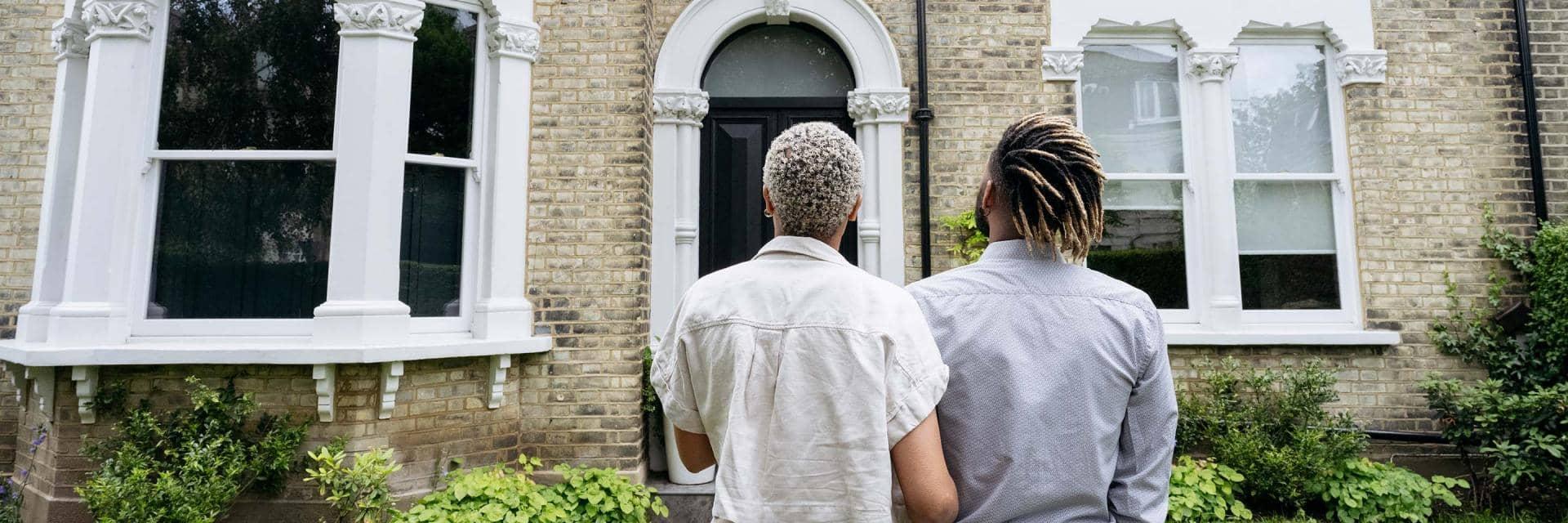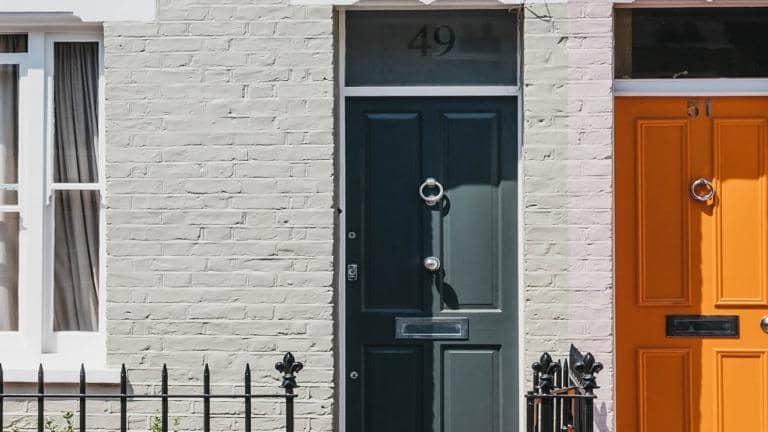

How to decide where to live
Move for all the right reasons
Looking to buy but not sure where? Here’s how to check you’re making the right kind of move.
On a property hunt? It’s not easy to pick the perfect postcode. You find a flat in a friendly neighbourhood next to plenty of parks and open space - but it’s just a bit too far from the train station. Or there’s a house with a great school at the end of the road, but there’s no garden (and glaring street lights galore). What about this funky furnished flat less than five minutes from a sports centre? Unfortunately, it looks directly onto an unsightly local tip.
It doesn’t matter if you’re a seasoned mover or a first-time buyer, you’ll rapidly run into these types of trade-offs when you look to move.
To set yourself up for success, you’ll need to be ready to compromise (particularly if you’re a couple buying together). And that means a frank assessment of what matters the most to you, and why.
Once you know your budget, you can begin to work out where’s likely to suit best. Here are five tips to get that crucial conversation started.
Draw up your deal-breakers – what can’t you live without?
Any hunt for a new home will start with a list of your own ‘must-haves’. Your original decision to move will naturally be driven by a number of pressures, so you need to work out what you really can’t compromise on. And since every home move is triggered by its own mix of unique reasons, be sure of your own personal priorities.
For some first-timers, the deal-breaker might be cultural with a bijou flat in a buzzy boho neighbourhood. Others may insist on lifestyle instead – a place within a 20-minute drive of open countryside – or prioritise a renovation project they plan to sell for a profit in an up-and-coming area.
Growing family behind your home move? Your deal-breakers will likely be very different. Depending on your kids’ ages, bigger bedrooms and greater space indoors will probably top your list. So you’ll need an affordable area that can cater for this without breaking your budget. Decent childcare/nurseries/primary or secondary schools usually rank next. A garden, open space and low crime levels might all run a very close third. Or you might choose proximity to family (more childcare help!) and friends instead, wanting the ease of popping over in a matter of minutes.
You’ve plenty of online tools to help. Try Locrating for info about schools’ Ofsted ratings and catchment areas. RightMove has some terrific tools too. You’ll need to set up an account, but once in you can pick a key factor – driving time to a school, say, or train station for commuting – and it’ll find available homes that fit the bill. If you’re seeking a move to manage a new work-life balance, Commute Time Map can help you quickly compare options too.
Run a reality check on your new everyday life
Try to project yourself into your future shoes, and imagine how your new post-move daily life may play out.
The idea is that this’ll help you envisage the type of everyday challenge likely to emerge, and it can inform your choice of new home. Colourful clichés aside, major cultural changes such as a move from suburbs to countryside – fancy swapping flat whites for wellies, anyone? – can often be full of shocks. For example, if you’re used to walking everywhere, can you live comfortably with a 20-minute drive to get a pint of milk or drop your kids at school? Or if you’re craving calm village life but love arts and music, you might get quickly bored without a lively town nearby. Think of other practicalities too. Say your target home is just 10 minutes’ walk from a railway station, but what if the nearby roads are poorly lit, isolated and give you safety concerns? Or you may have found a good-sized family home in catchment for a brilliant school but… it’s three streets from a very busy (and very noisy) A-road and the air pollution levels are too high for your comfort. Taking time to road-test what you might face in your new home can help prevent problems further down the line.
Test your move for ‘future-proofing’
If you’re still working out where to live, it might feel improbable to know ‘for how long’ as well. Especially for first-timers, this will no doubt feel like a secondary concern compared to being able to finally get on the property ladder. Yet it’s a key question to keep in the back of your mind. It’ll help to consider what direction your life may take as you get older – and ask if (and how) your new place would be able to support that.
Of course much will depend on your personal circumstances. Young first-timers set on city life may not need to look beyond closeness to the centre (and its café culture). Yet older first-time buyers also keen on urban living but with one eye on starting a family could do well to cast their net much wider – and look further out to suburbs with nursery networks, an extra bedroom and more green space with playgrounds.Alternatively, if you’re older and on your second or third move, your personal life preferences will come to the fore.
Maybe you want to start your own business, get involved in volunteering or spend more time outdoors. So will the location give you the lifestyle you want in future? Think about how your family’s needs will change too – will you want to be closer to older relatives, and is there enough to keep teenagers amused? If you’re keen to become part of a community, aim for a place that can grow with you.
Get the lowdown on locals (from your own living room)
Once you find a place that looks promising, the next step will be to take a good look round. But before you visit in person, you can learn an awful lot from the comfort of your own sofa.
Hop online to get a feel for the area via social media, online forums and community chat groups. Perhaps you’ve got Instagram friends who grew up or studied there, and can give you a steer on the local vibe, on restaurants, pubs, independent stores et al. If you’re already on a parenting or hobby forum, there’s likely an off-topic section where you can ask for advice. People are often very keen to share their opinions – and they’ll be eager to tell you what the estate agents won’t. Plus, you can check out local Facebook groups and have a nosey on Google Streetview too. Don’t forget to use local agencies and national bodies to allay any other concerns you may have. For example, you can look up any flood risk on the UK government’s flood maps, or monitor crime levels on the national police body.
Worried about making a big mistake? Try before you buy
It’s a classic Catch-22. You can’t really know a place until you move there, but you don’t want to move there until you know it… so what can you do? Well, some opt to rent before they buy. It’s more likely to appeal to first-time buyers, and be more of a realistic option for those without kids. But if you can deal with extra moving costs and potentially pricy short-term lets, renting could be a very good bet. It’ll give you invaluable insight and a genuine feel for a long-term place to live. (You could discover that nightmare one-way system or that hidden leafy little district dotted with brilliant pizzerias). Then, when the time comes, you’ll be able to buy with great confidence – and being chain-free could give you the edge, too.
Naturally, it’ll be far less hassle to simply visit your target neighbourhood in person. Don’t just go once or twice, though. Take trips at different times, on different weekdays and squeeze in a weekend too – you’ll get a much better idea of all-round noise, traffic and general liveliness.
We are not responsible for, nor do we endorse in any way, such third-party websites or their content. If you decide to access any of the third-party websites, you do so entirely at your own risk.
You may also be interested in


What’s the real cost of moving house?
The bills you’ll need to budget for
Moving home is an exciting experience – but it can be an expensive one too. From solicitors’ fees to stamp duty and storage costs, it all adds up. To help you budget, here’s our breakdown of the bills to prepare for.

Moving home
Tips to help you plan for moving
Thinking of moving? Read our tips on how to choose a location, weigh up the cost, sort out your mortgage and make plans for moving day and beyond.
Funding your move


Work out your mortgage costs
Try our calculator to see examples of what you’d pay each month, and over the full term, for different mortgage types and interest rates.

Get the cover you need for your home
Get a quote for buildings and contents insurance, and find out why it’s important to ensure your mortgage is covered if you fall ill or die.

Find your way around money
…and make money work for you
Your money – the way you spend it, save it and (try to) look after it can be complicated.


